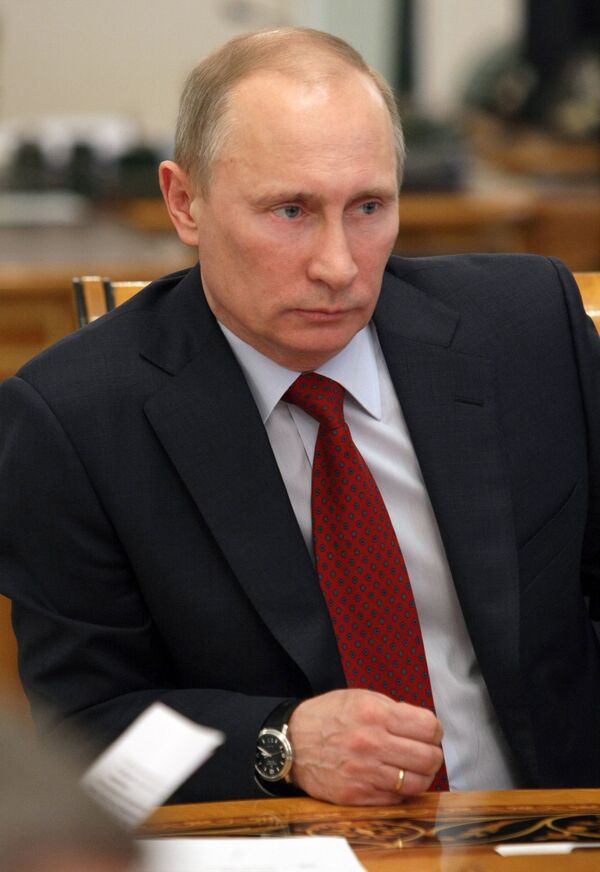A storm has blown up in Germany over the decision to award Russian Prime Minister Vladimir Putin the prestigious Quadriga prize for his role in the development of Russia.
Berlin-based Werkstatt Deutschland ("Workshop Germany") announced last Saturday that Putin was to receive the prize for his contribution to Russia's "stability through the interaction between prosperity, economics and identity," as well as to the reliability of German-Russian ties.
The prize, a small statue of the quadriga - a chariot pulled by four horses - on top of the Brandenburg Gate in Berlin, is to be bestowed upon the Russian prime minister on October 3, the Day of German Unity.
Putin served with the KGB in East Germany for five years until German reunification in 1990.
Several Quadriga board members, including Cem Ozdemir, a co-chair of the German opposition Green party, Wikipedia founder Jimmy Wales and history professor Edgar Wolfrum, withdrew from the board in protest against the decision. Ozdemir said there were "differences" between him and other board members in the evaluation of Putin's contribution to "democracy" and the rule of law, while Wolfrum described the decision as "scandalous."
"It's unacceptable that responsibility is laid upon some organizing committee members for decisions that they have not made, that they have not been informed about," Wolfrum said in an interview with Rhein-Neckar-Zeitung newspaper.
There are 20 people on the Quadriga board, including German Secretary of State Wolf-Ruthart Born, Transport Minister Peter Ramsauer, as well as Serbian President Boris Tadic and other public figures.
The award, which has no monetary component, is awarded to honor "models committed to enlightenment, engagement and the common interest." Former Soviet leader Mikhail Gorbachev and former Czech president Vaclav Havel have won the award in the past.
Neither the German, nor the Russian governments have commented on the Quadriga board's decision to honor Putin.
"This is not a prize that is awarded by the government," a German government official told journalists on Friday.
Putin's press secretary said it was not the Russian government's remit to discuss the Quadriga board's decision. Dmitry Peskov said Putin had received several international prizes in the past and accepted them simply as recognition of his achievements in various spheres.
German political scientist Alexander Rahr said on Friday there were "many political forces in Germany who always reject whatever Putin does."
"There is a big necessity to make the world happy in the German society... they like to moralize and show indignation," he said.
At the same time, the Quadriga is not a very significant award, Rahr said: "This is not the Nobel Prize."



